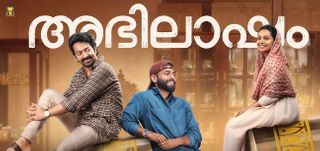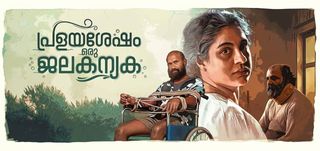
Gramam Movie Review
Its way back in 1938 that Mohan Sharma sets his 'Gramam' up in a Brahmin village, ridden by age-old customs and traditions. It's here that Thulasi (Samvrutha Sunil) gets married off in her teens to a young boy, only to find out that he has passed away a few days later.
Stripped of the very last bit of joy in her life, Thulasi is forced to lead the life of widow, along with her grand mother (Sukumari) in a secluded room. While the world outside grows ever more colorful with the customary celebrations on in full swing, Thulasi teaches herself not to venture out much into broad daylight.
The film however is no 'Parinayam', the Hariharan film that told the tale of a young widow who fell in love, and the script is what makes all the difference. While 'Parinayam' banked on a solid script penned by M T Vasudevan Nair, 'Gramam' stutters to make a similar impact, precisely because of the curbs imposed the script.
It's sad really, since the film does have several promising ideas that sound interesting in isolation. Their conjugation on screen however is half as effective as you would expect them to be.
Take for instance the woman who has supposedly gone insane, and who roams the village shouting out her witty one-liners. Much of what this character actually is, ends up being lost in the double entendres that she utters. Her comment on the same blade having been used to shave the crotches of the village teacher and for tonsuring the old widow is one of the many statements that get lost in the film.
Mohan himself plays the patriarch Mani Swamy who is the final word in the family. Mani Swamy is a dictator no doubt, and one who is downright scared of the village as well. However, in crafting the rest of the characters, Mani Swamy seems to have paled in comparison, resulting in an ineffective antagonist.
Mohan impresses more as an actor than a director in the film, and comes up with a strapping performance in the film. Nishan and Samvrutha leave a mark as well. The ever dependable Sukumari is amazingly good in a role that she essays to perfection. Yesteryear actresses as Priya and Nalini make an impact. Madhu Ambat's cinematography is remarkably good, and does bring out a striking contrast between the two worlds that Thulasi has lived in.
As the film races to a climax, the country gains freedom and so does Thulasi. Malli, the parrot that had remained in the cage for long, is set free as well. And you realize, that with all the energy and efforts, and with a fine thought running through, 'Gramam' as a film, should have been much, much better.



















